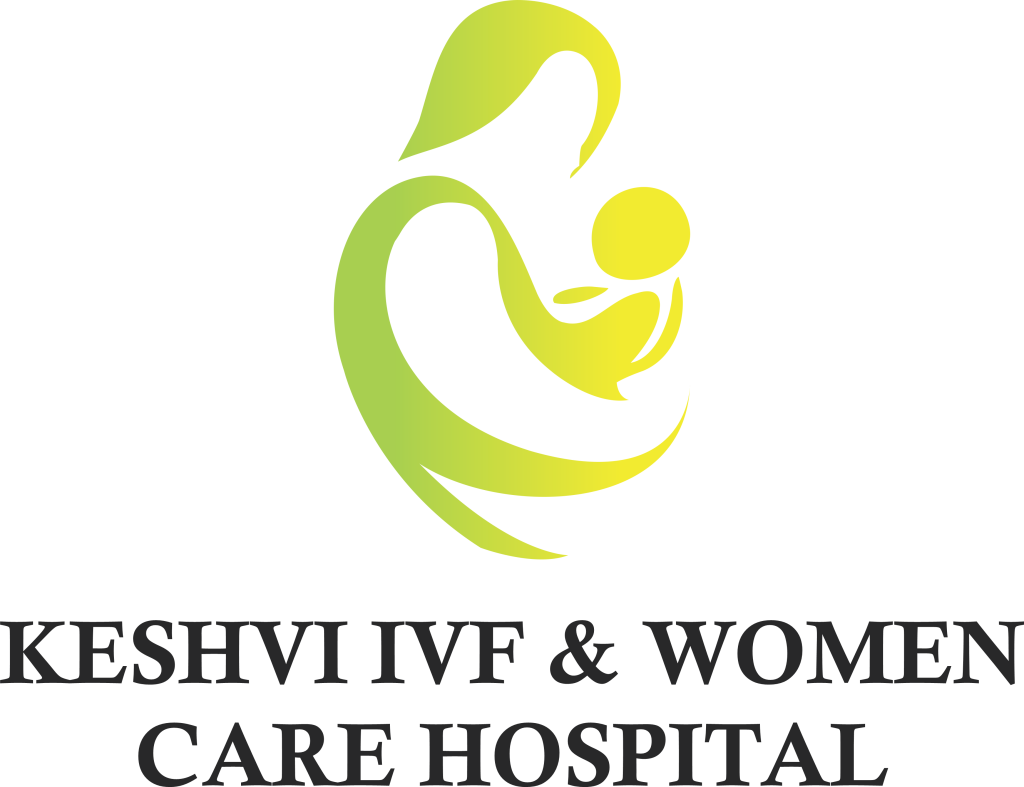Keshvi IVF & Women Care Hospital
How to Test Infertility In Women: A Comprehensive Guide
Infertility in women can be a challenging journey for couples trying to conceive. Understanding the diagnostic process is crucial in identifying potential issues and exploring effective treatment options. Testing for infertility involves examining various factors that impact a woman’s reproductive health, such as ovulation, hormone levels, and the condition of reproductive organs.
When to Seek Medical Advice?
Women should consider fertility testing if they:
– Are under 35 and have been trying to conceive for 12 months without success.
– Are over 35 and have been trying for 6 months without success.
– Have irregular, absent, or painful menstrual cycles.
– Have a history of pelvic infections, endometriosis, or previous miscarriages.
– Experience unexplained symptoms like severe cramps, abnormal bleeding, or unusual vaginal discharge.
Key Tests for Female Infertility Diagnosis
Infertility in women treatment consists of various tests, that are mentioned in the following:
1. Medical History and Physical Examination
A fertility specialist will review your menstrual cycle, sexual activity, medical history, lifestyle habits, and any past surgeries or infections. A pelvic exam may also be performed to check for abnormalities in the reproductive organs.
2. Ovulation Testing
Since ovulation is essential for conception, doctors often begin by checking whether you’re ovulating regularly.
Common Women Infertility Tests Include:
– Basal Body Temperature (BBT): Tracking your temperature daily to identify ovulation patterns.
– Ovulation Predictor Kits: Urine tests that detect luteinizing hormone (LH) surge, which triggers ovulation.
– Blood Tests: Measure hormone levels such as progesterone to confirm if ovulation has occurred.
3. Hormone Testing
Hormonal imbalances can affect ovulation, egg quality, and menstrual cycles.
Key Hormones Testing Includes:
– Follicle-Stimulating Hormone (FSH): Evaluates ovarian reserve.
– Luteinizing Hormone (LH): Monitors ovulation.
– Anti-Müllerian Hormone (AMH): Measures ovarian reserve.
– Prolactin: High levels may indicate pituitary gland issues affecting fertility.
– Thyroid Hormones (TSH): Imbalances can interfere with ovulation.
4. Imaging Tests
These tests help identify structural issues in the reproductive system.
– Ultrasound: Detects ovarian cysts, fibroids, or issues with the uterus and fallopian tubes.
– Hysterosalpingography (HSG): An X-ray procedure where a contrast dye is injected into the uterus to check for blockages in the fallopian tubes.
– Sono hysterography: Uses saline solution and ultrasound to examine the uterus more closely.
5. Ovarian Reserve Testing
This evaluates the quantity and quality of eggs.
– AMH Blood Test: Provides insights into your remaining egg supply.
– Antral Follicle Count (AFC): An ultrasound that counts the number of small follicles in the ovaries.
6. Genetic Testing
If there’s a family history of infertility or genetic conditions, tests may be done to identify potential genetic abnormalities.
7. Laparoscopy
For suspected conditions like endometriosis or pelvic adhesions, a minimally invasive surgical procedure called laparoscopy may be recommended to inspect the reproductive organs directly.
8. Endometrial Biopsy
In some cases, a sample of the uterine lining may be collected to assess its health and receptivity to a fertilized egg.
How to prepare for infertility tests?
To ensure accurate results:
– Track your menstrual cycle details beforehand.
– List any medications or supplements you’re taking.
– Maintain a record of symptoms like pelvic pain or abnormal bleeding.
– Discuss lifestyle factors such as stress, smoking, alcohol use, and diet with your doctor.
Emotional Impact of Fertility Testing
Fertility testing can be emotionally challenging. At Keshvi IVF & Women Care Hospital, we understand that this journey requires more than just medical expertise — it demands empathy and emotional support. Our team is committed to walking alongside you throughout the process
What if a woman is infertile after diagnosis?
If tests reveal potential fertility issues, treatments may include:
– Lifestyle changes (diet, exercise, stress management).
– Medications to regulate hormones or stimulate ovulation.
– Surgical interventions for conditions like fibroids or endometriosis.
– Assisted reproductive techniques such as IUI (Intrauterine Insemination) or IVF (In Vitro Fertilization).
Conclusion
At Keshvi IVF & Women Care Hospital, we are committed to turning dreams of parenthood into reality. With cutting-edge technology, personalized care, and a dedicated team of experts, we strive to provide the best possible outcomes for every patient. Our compassionate approach ensures that each journey is supported with guidance, hope, and unwavering care.
Whether you’re beginning your fertility journey or suffering from infertility or exploring advanced treatment options, we are here to walk with you every step of the way — because every family starts with a story, and we are honoured to be a part of yours.

